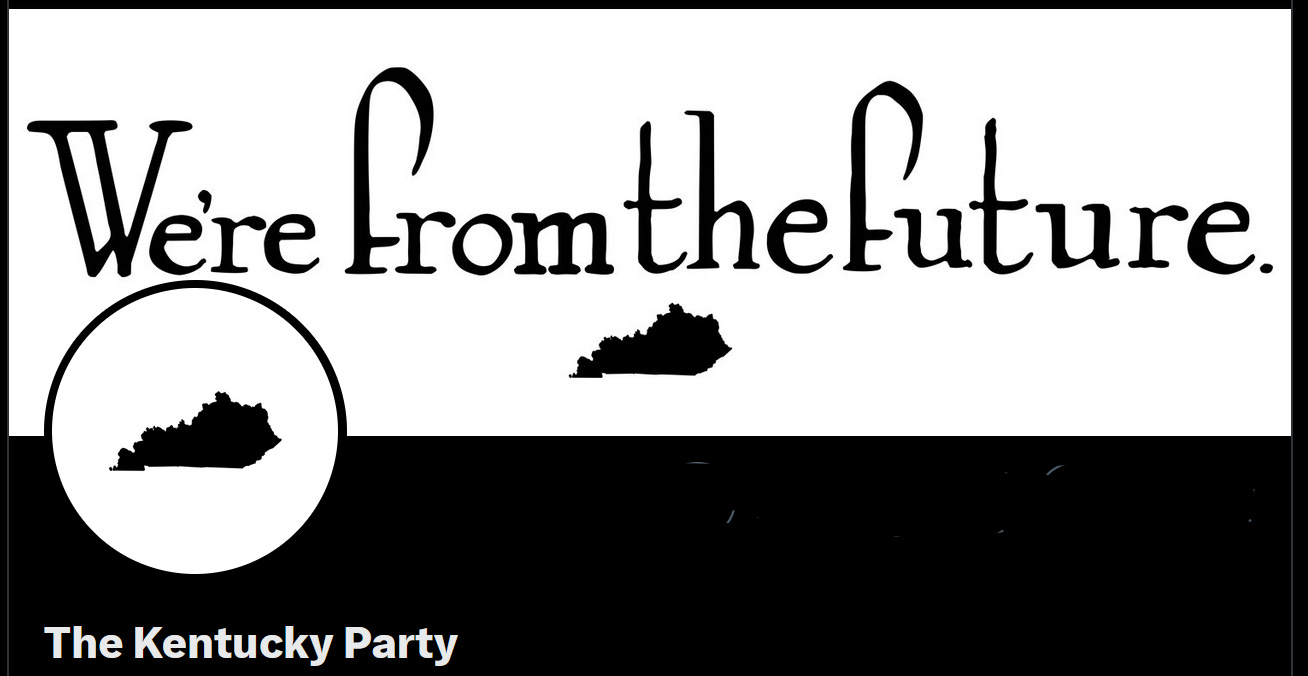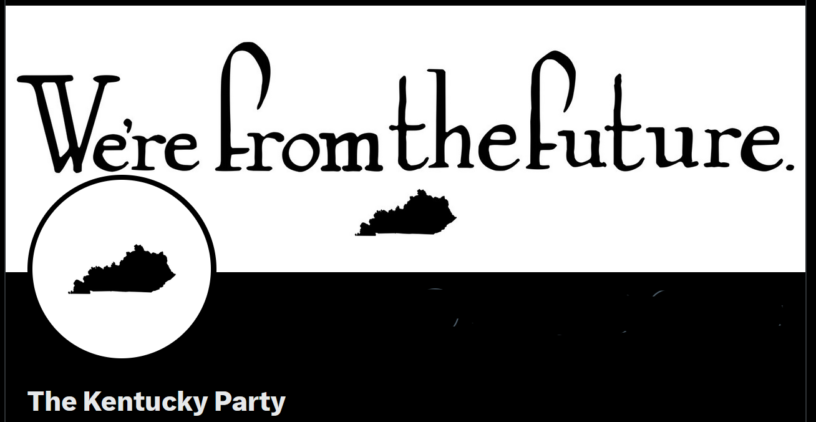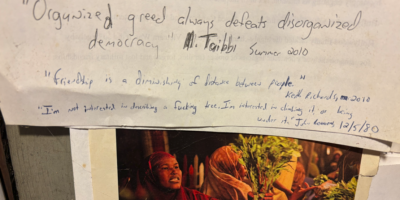When it comes to Presidents, Senators and City Council Representatives, I am an Honesty Voter. No lesser of two evils for me. This means that, for a long time, I have voted Third Party for President. The last establishment candidate I voted for was Barack Obama in 2008, after which I promptly paddled up the Dix River and spent the afternoon submerging myself in its 55 degree waters.
It wasn’t until formally composing a piece last week on the 1848 Free Soil Party campaign that I hit upon why it is that I have been such a stubborn supporter of Third Parties. As much as the Free Soil movement was about opposing the extension of slavery into the western territories, it was also concerned with how democracies move. By 1848, the two political parties, Whigs and Democrats, had become incapable of dealing with a key national issue, slavery.
Free Soilers built their party out of this tone deaf ignorance. They appealed to Barnburner Democrats who walked out of the 1848 Democrat national convention in disgust. They picked off Conscience Whiggers after that party’s national convention chose a 300-slave owning General from Louisville, and they attracted members of the Liberty Party who felt their abolition interests would be enhanced by the new Free Soil coalition.
All these unrepresented groups organized against the wishes of their national political party leadership. They began at state-level conventions and in local papers, where they stated their frustrations and elected representatives to send to their own makeshift national convention in Buffalo. (The site itself was designated at a boisterous free soil rally in Columbus, Ohio). At the national convention, they crafted a platform, designated a candidate—and changed the American political landscape forever. Their uncompromising position on the extension of slavery would doom the wishy-washy Whigs as a political party and soon embolden a new one, the Republicans, who (having listened to the populace) would successfully take up the Free Soil commitment to abolishing slavery.
In this Free Soil story is my personal theory for how power moves, or ought to move, from my honest ballot on up through the political parties and into the rest of the world. It is bottom-up, small “d” democracy, the very opposite of what we saw on display by big “D” Democrats this election cycle. It is why I voted again for Jill Stein (who I voted for in 2012), who was nominated by the newly formed Kentucky Party to the angry chagrin of people like AOC.
At the federal level, I am an anti-imperialism/pro-peace voter. Generally speaking, I want my country to divest from its global war-making capabilities, and to re-invest that financial and human capital into my community and yours. I do not want wars or an overly large defense economy. You may not care so much about our endless string of fomented wars, but let us recognize: you are well represented in your pro-war views by both Republicans and Democrats in your state, in your nation, in your community, and in your workplace.
But my beliefs leave me completely un-represented. A weirdo. My own political life overlaps generally with the Global War on Terror; for years, I wanted to believe that Democrats were the party of peace, opposing the war-mongering of George Bush and his neocon goons. By 2010, though, it was hard to believe that myth any longer—which is probably why the anti-war movement suddenly disappeared with the election of Barack Obama. Nobody wanted to state the quiet part out loud, and so we got a superficial anti-racism mixed with violent imperialism. With Kamala Harris’s embrace of Dick Cheney—Dick Fucking Cheney!—it’s hard to miss that Democrats are in fact now the belligerent, foaming-mouth party of war, more militant even than Republicans. I have had to look elsewhere or accept my status as a voluntary felon, a citizen without access to meaningful suffrage.

At its heart, The Kentucky Party is focused on two historically resonant American things. The first is ballot access, which is heavily restricted at all levels (local, state, national) by both the Republican and Democrat parties who hold a monopoly on candidate choice.
This is not an insignificant issue. The fastest growing demographic of registered voters are Independents, people like me, who now make up 10% of registered Kentucky voters. Add to this the roughly 40-50% of the Kentucky voting age population who are not registered at all, the Opt Out Independents (OOI’s), and that is about half of voters who have effectively been removed from “their” democracy, the democracy of Democrats and Republicans. The Kentucky Party is intended as a vehicle to give “independent candidates a ballot line in statewide and local elections.” That is something that I desperately want as a perennially unrepresented middle-aged citizen looking to make an honest vote.
The KYP’s second focus is anti-war. Like a modern day Free Soil party, this fills my voter niche. You all can have your “our democracy” voting interests—I’ll settle for us bombing less people, and shuttling less of our billions in national wealth to other war-making nations. My vote for the Kentucky Party was a hopeful one for a future in which other anti-war citizens can have a group to represent us, to organize candidates, and to try and effect change from our current imperial death spiral.
It will be a long haul. The Kentucky Party earned less than 1% of the vote in the Commonwealth last night. But I’ll take it. At least it’s honest. When it comes to my views on my country, I am most definitely a loser. A longtime loser. A recipient of multiple ass-whoopings kind of loser. Made fun of by progressives donkeys and conservative elephants loser. A New York Generals level of loser. It’s taxing. I stoop more, speak less about it to friends and family and acquaintances, and otherwise try to melt into the landscape, like a deer in hunting season.
But I have a dream that, one day, honest peaceniks like myself will be viewed as human enough to warrant political representation. And when that day comes, I hope to be standing alongside the longtime losers from the Kentucky Party.





Leave a Reply